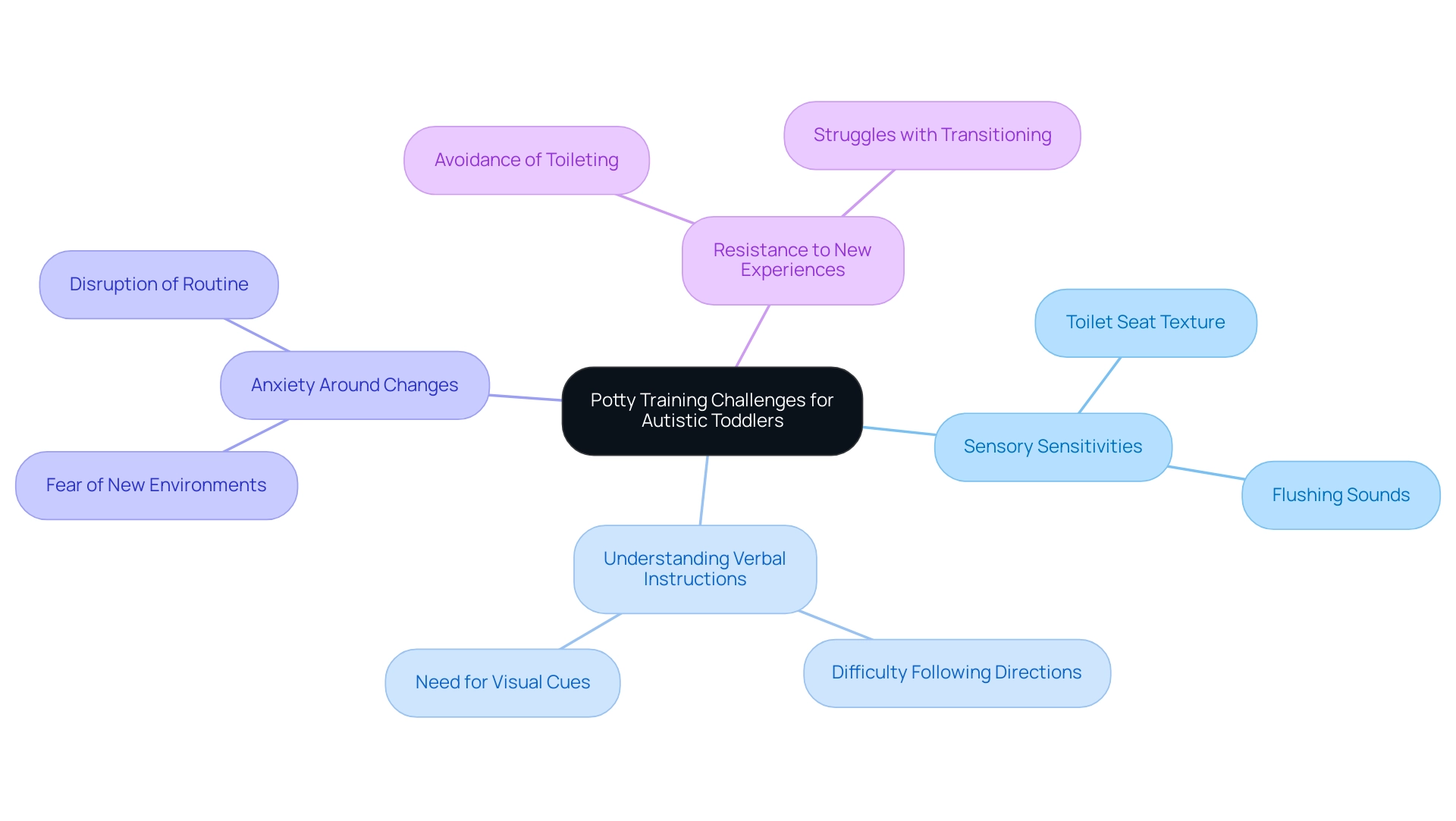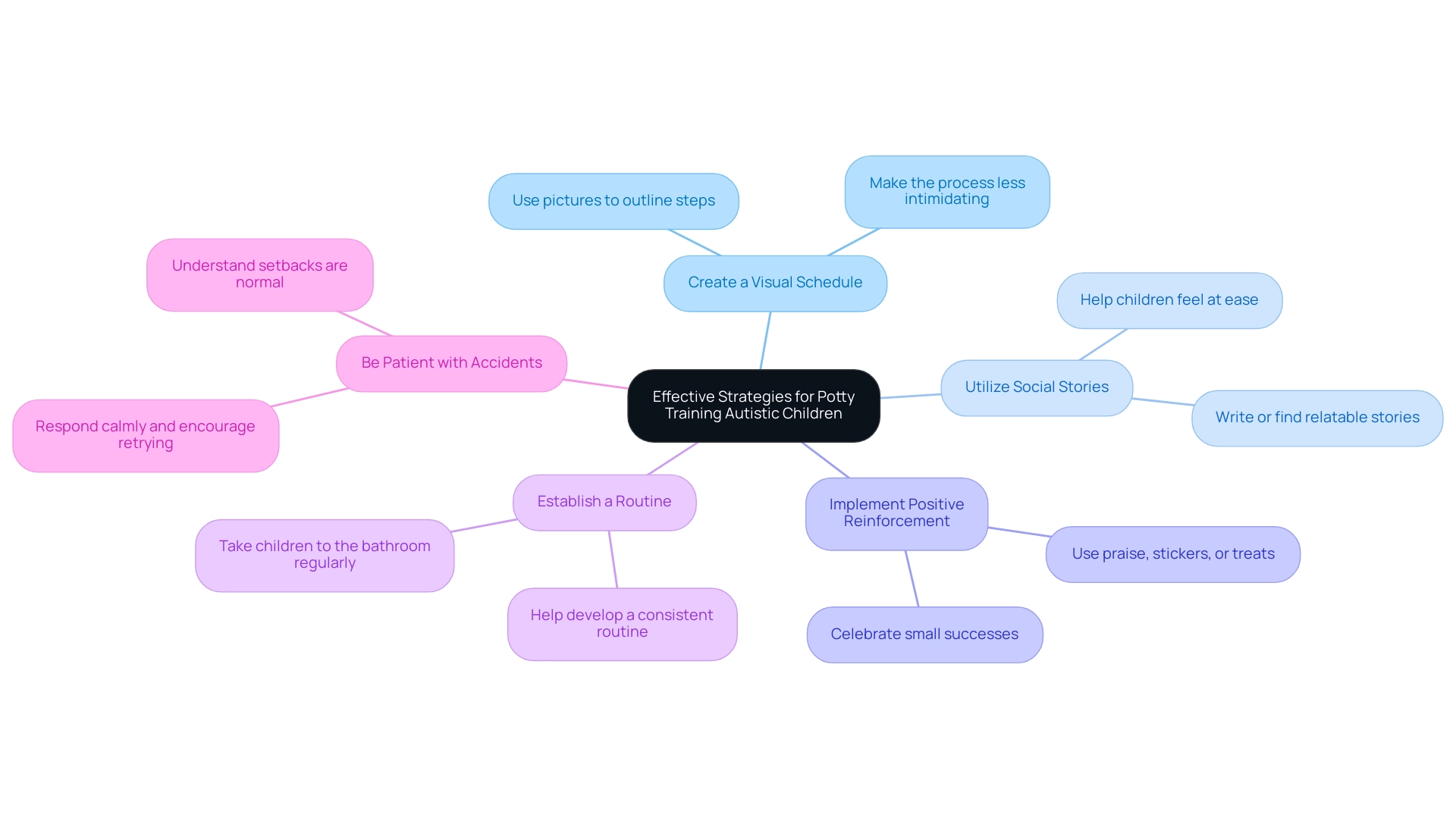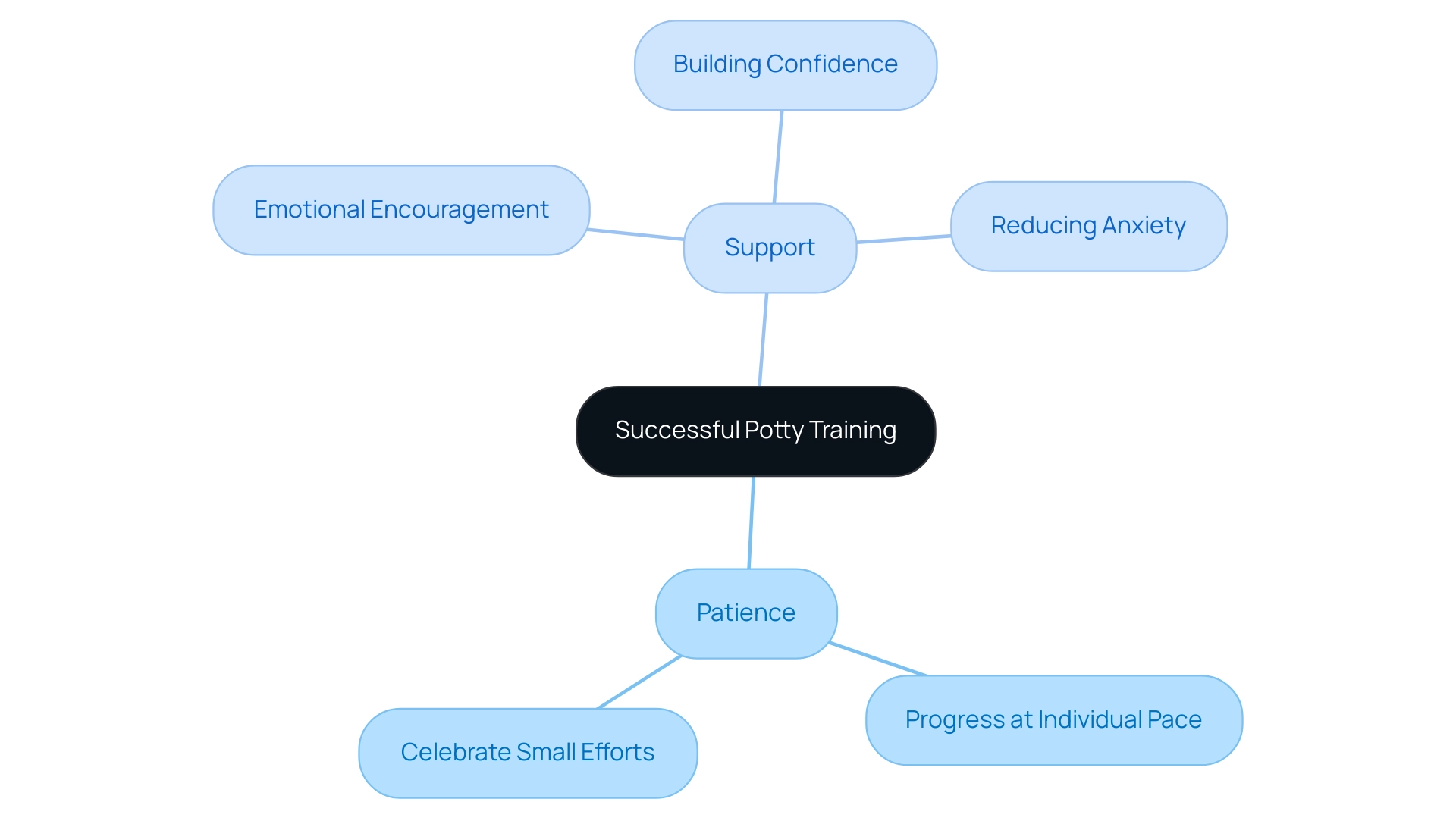Introduction
Navigating the world of potty training can be particularly challenging for parents of autistic toddlers, as each child presents unique needs and sensitivities. From sensory issues to difficulties in grasping verbal instructions, the journey can feel overwhelming. However, understanding these challenges is the first step toward a successful potty training experience.
By embracing tailored strategies and maintaining a supportive environment, parents can empower their children to overcome obstacles and achieve this important milestone with confidence. This article explores effective techniques and the vital role of patience, offering a roadmap for parents ready to embark on this significant developmental journey.
Understanding the Challenges of Potty Training for Autistic Toddlers
Potty education for an autistic toddler can present unique challenges, including:
- Sensory sensitivities to the texture of the toilet seat or the sound of flushing
- Difficulties in understanding the verbal instructions
- Anxiety around changes in routine
Parents may also encounter resistance to new experiences, which can complicate the process. Understanding these potential challenges is the first step in preparing for a successful potty training journey. Understanding that every young one is unique and may need customized strategies can assist parents in feeling more prepared to navigate this experience.

Effective Strategies for Potty Training Autistic Children
- Create a Visual Schedule: Use pictures to outline the steps of using the toilet. This can assist your offspring in grasping the process visually, making it less intimidating.
- Utilize Social Stories: Write or find social stories that explain potty training in a relatable way. Exploring these tales can assist your young one in feeling more at ease regarding the process.
-
Implement Positive Reinforcement: Celebrate small successes with praise or rewards to encourage your offspring. This could be verbal praise, stickers, or a special treat.
-
Establish a Routine: Consistency is key. Take your offspring to the bathroom at regular intervals, such as after meals or before bed, to help them develop a routine.
- Be Patient with Accidents: Understand that setbacks are a normal part of the process. Respond to accidents calmly and encourage your young one to try again without punishment.

The Role of Patience and Support in Successful Potty Training
Patience is a fundamental component of potty training. Understand that progress may be slow and that every individual learns at their own pace. Offering emotional support and encouragement can assist a young one in feeling secure and comprehended during this transition.
- Celebrate their efforts, no matter how small, and remind them that it's okay to make mistakes.
- By fostering a positive atmosphere, you can help your child build confidence and reduce anxiety around using the toilet.
- Remember, your unwavering support is instrumental in guiding them through this important milestone.

Conclusion
Navigating the journey of potty training for autistic toddlers is undeniably complex, yet it is a crucial milestone that can be achieved with the right strategies and support. Understanding the unique challenges, such as sensory sensitivities and anxiety around changes, sets the foundation for a successful experience. By recognizing each child’s individual needs, parents can tailor their approach, making the process less daunting and more manageable.
Implementing effective strategies like visual schedules, social stories, and positive reinforcement can significantly enhance the learning experience. Establishing a consistent routine and responding patiently to setbacks fosters an environment where children feel secure and encouraged to try again. It is essential to remember that every small success deserves celebration, reinforcing their confidence and willingness to engage in this new skill.
Ultimately, patience and steadfast support are the cornerstones of potty training success. By creating a nurturing atmosphere, parents can empower their children to navigate this important transition with confidence. With understanding, tailored strategies, and unwavering encouragement, achieving potty training is not only possible but can also be a rewarding experience for both parent and child.




